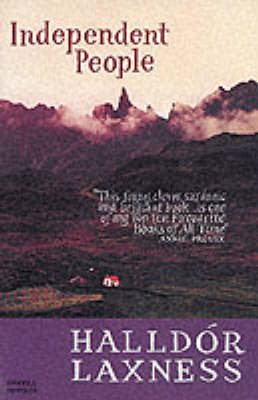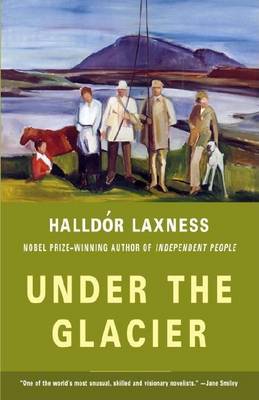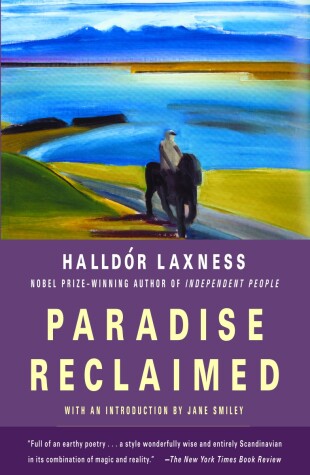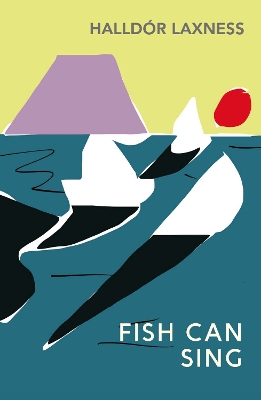Vintage International
6 total works
In the years that follow, the hapless but resilient rogue Hreggvidsson becomes a pawn entangled in political and personal conflicts playing out on a far grander scale. Chief among these is the star-crossed love affair between Snaefridur, known as “Iceland’s Sun,” a beautiful, headstrong young noblewoman, and Arnas Arnaeus, the king’s antiquarian, an aristocrat whose worldly manner conceals a fierce devotion to his downtrodden countrymen. As their personal struggle plays itself out on an international stage, Iceland’s Bell creates a Dickensian canvas of heroism and venality, violence and tragedy, charged with narrative enchantment on every page.
What is the emissary to make, for example, of the boarded-up church? What about the mysterious building that has sprung up alongside it? Or the fact that Pastor Primus spends most of his time shoeing horses? Or that his wife, Ua (pronounced “ooh-a,” which is what men invariably sputter upon seeing her), is rumored never to have bathed, eaten, or slept? Piling improbability on top of improbability, Under the Glacier overflows with comedy both wild and deadpan as it conjures a phantasmagoria as beguiling as it is profound.
As imagined by Nobel Prize winner Halldor Laxness in this magnificently humane novel, what might be cruel farce achieves pathos and genuine exaltation. For as Olaf’s ambition drives him onward–and into the orbits of an unstable spiritualist, a shady entrepreneur, and several susceptible women–World Light demonstrates how the creative spirit can survive in even the most crushing environment and even the most unpromising human vessel.
The quixotic hero of this long-lost classic is Steinar of Hlidar, a generous but very poor man who lives peacefully on a tiny farm in nineteenth-century Iceland with his wife and two adoring young children. But when he impulsively offers his children's beloved pure-white pony to the visiting King of Denmark, he sets in motion a chain of disastrous events that leaves his family in ruins and himself at the other end of the earth, optimistically building a home for them among the devout polygamists in the Promised Land of Utah. By the time the broken family is reunited, Laxness has spun his trademark blend of compassion and comically brutal satire into a moving and spellbinding enchantment, composed equally of elements of fable and folkore and of the most humble truths.
*BY THE WINNER OF THE NOBEL PRIZE IN LITERATURE*
'Laxness at his best: a reminder of the mad hilarity of the Icelandic sensibility. An endearing and unforgettable voice' Nicholas Shakespeare
Abandoned as a baby, Alfgrimur is content to spend his days as a fisherman living in the turf cottage outside Reykjavik with the elderly couple he calls grandmother and grandfather. There he shares the mid-loft with a motley bunch of eccentrics and philosophers who find refuge in the simple respect for their fellow men that is the ethos at the Brekkukot. But the narrow horizons of Alfgrimur's idyllic childhood are challenged when he starts school and meets Iceland's most famous singer, the mysterious Garoar Holm. Garoar encourages him to aim for the 'one true note', but how can he attain it without leaving behind the world that he loves?
'It is a novel (a world) that transmits something of the wonder of life' Murray Bail




